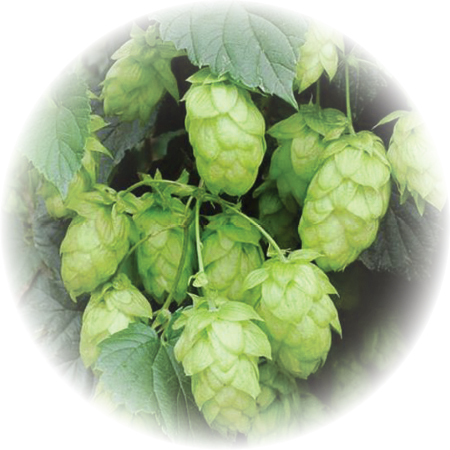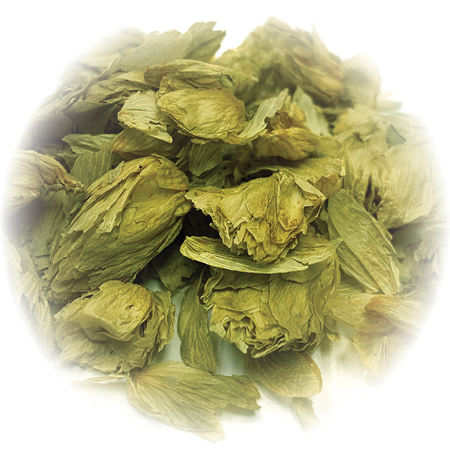Hops Flower, Whole (Humulus lupulus) – Dried Herb, Organic
$38.16 – $381.60
Hops is also known as Common Hops, Lupulin, European Hops, Simple Hops and Beer Hops is a species of flowering plant in the hemp family (Cannabaceae). Hops is a small family of flowering plants including about 170 species grouped in about 11 genera, including Cannabis (hemp, marijuana) and Celtis (hackberries).
This herbaceous perennial is a climbing vine native to Europe, western Asia and North America. The specific name Lupulus is derived from the Latin “lupus”, meaning a wolf. As Pliny explains, when produced among osiers Hops strangles them by its light, climbing embraces, as the wolf does a sheep.
Hops leaves are usually opposite, palmately lobed (three to four compound leaflets), veined, and serrated, medium green or yellowish green on their upper surfaces and whitish green below. Hops has distinctive Flower Cones–or strobiles–that are referred to as Hops, and flower in July and August. Inside the Hops are golden grains that form a sticky greenish-yellow to orange-yellow, which is a concentration of all the resin compounds and essential oils that create Hops’ bitter flavours and aromas. Hops are dioecious, which means they have separate male and female plants. Only the female produces the flowers; and in the wild the flower is pollinated by the wind because bees are not interested in the pollen or its nectar. Commercially most Hops are grown from rhizomes or propagated from cuttings.
Hops has been used to flavour beer in Asia as far back as 10,000 years, where it then spread quickly to Eastern Europe countries. Hops appear to have been used in the breweries of the Netherlands in the beginning of the fourteenth century. Most brewing of beer in fifteenth century Germany was done by monks. There have been mentions to Hops and Hops gardens in monastic literature. Monks advised young males to drink Hops tea to help them remain chaste.
In Switzerland, Hops was mentioned by author Paracelsus in the 1400s as a digestive aid. In the 1500s, the German author Matthiolus mentioned its diuretic and bile-increasing effects. The author Bock Lonicerus mentioned the use of the young Germany i shoots for cleaning the blood, liver and spleen. The use of Hops flowers was described by Hecker in 1814, for its strong tonic features as a bitter and noted its calming properties. King George III of the United Kingdom in the late 1700, early 1800s, supposedly bedded on pillows filled with Hops to calm him. In North American Indigenous medicine, the Cherokee used Hops as a sedative, anti-rheumatic, analgesic, gynecological aid for breast and womb problems, and kidney and urinary aid for “gravel” and inflamed kidneys. In Ayurvedic medicine, Hops have been recommended for restlessness associated with nervous tension, headache and indigestion actions.
Properties:
The taste and energetics of Hops very bitter, cooling and drying. Hops has an affinity towards the nervous system, digestive system, liver, gallbladder, blood, spleen, circulatory system, musculoskeletal system, woman’s reproductive system and kidneys. For relaxation combine Hops with Lavender, California poppy or Skullcap. For the liver support combine Hops with Burdock Root, Dandelion root or Milk thistle Seed.
How to use:
5-10 Hops Flower Cones to one cup of boiling water. Infuse for 10 minutes, strain and drink up to three cups a day.
Cautions & contraindications:
Alcohol and sedative medications (CNS depressants) may interact with Hops.
This information is for educational purposes only and is not intended to diagnose, treat or cure any disease or illness. Please consult your healthcare provider prior to the use of this product if you are pregnant, nursing, taking medications or have a medical condition. Individual results may vary.




Reviews
There are no reviews yet.